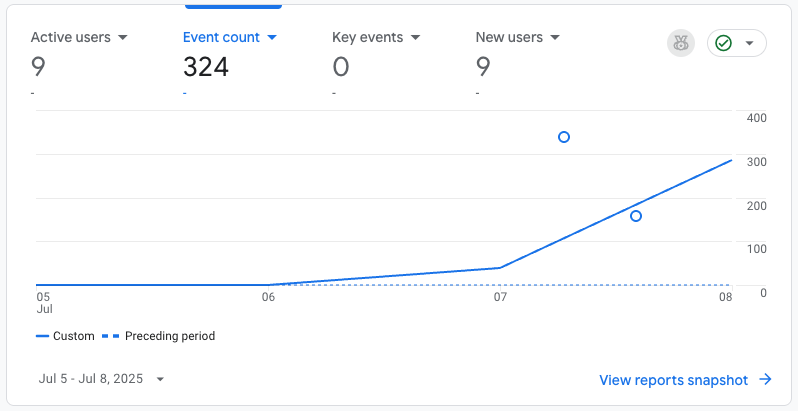Vibe Coding
I’ve been wanting to explore all the available tools for vibe coding for a while now. It’s been hard getting any time outside of juggling a 2 year old feral toddler, a new baby that’s on the way. Being inside a big company with its own purpose built tooling it’s always hard to know what’s happening in the outside world. Usually doing this exercise every few years seems like a good idea. Except this time it feels different. This time it feels like I just need to be shipping projects all the time whenever I get any free time.
And here is why:
- Pure Vibecoding. I was able to ship it without writing a single line of code (almost), in a few hours that could have easily taken me a month+ to build on my own.
- I don’t think you need to be an engineer anymore, vibe coding tools have matured quite a lot and you can easily build apps that are 50k+ lines of code without lifting a finger.
- That also means you are 5 hours of vibe coding session away from changing your future. If I was a student right now, that is all I would be doing.
- The “free” plans of all the developer focused tools are really generous and you don’t need to pay a dime unless you have a product that’s actually working. Building products has almost no tax.
- Overall developer tooling has gotten insanely good. In particular, Vercel was really impressive. It can directly connect to your github repo, and manage all the deployments automatically. Up until 5 years ago this was a big struggle even in major companies like amazon, meta where they could afford to spend millions on this tooling. Now everyone with internet access gets it for free. It’s honestly mind blowing.
- Ahref was fun, I’ve never really used any of the SEO optimization tools. I’ve almost always just built products for the kick of it. This was because I wanted to work my way backwards and find out queries that had high enough search volume and low keyword difficulty. With that in mind I used Ahref, Semrush and a bunch of other SEO tools. It was a good way to find ideas – I’ll certainly try again.
- Supabase was another standout product. It was incredible how easy it was to get a database rolling and connected to my next.js app. It’s amazing not having to think about managing your own DB instances.
- I host this personal website on aws where I actually manage a micro instance. Thinking more about this I think I need to migrate my website to the next.js vercel stack.
- Javascript frameworks have matured a lot and the community is merging on a few great options. I remember back in 2014 in amazon photos when we were trying to decide what to build amazon photos on – we spent almost 2 weeks trying to decide what stack to use. Now it’s easy to converge on some react based solution – particularly a routing framework like next.js – the support is next level, there is a plugin for everything you can imagine under the sun and answer to all your question
- This also means AI based coding editors understand it really well. I tried all of them and loved the cursor. While all of them were mind blowing, cursor really stood out – mostly because of finegrained control, access to local filesystem and ability to tune behavior with .currsorrules, ability to configure different models for different needs etc. besides cursor i enjoyed prototyping UI with v0 and bolt, I tried Replit and Windsurf too but liked cursor just a bit more.
- In terms of model, gemini 2.5 and claude sonnet 3.7 absolutely kill it at coding tasks. For all the research – gemini 2.5 and chatgpt 4.5 deep research turned out to be pretty good. PS: I accidentally ended up buying Claude membership for an entire year and their customer service absolutely sucks.
- I’m planning to build a lot more of these sideprojects so I wanted to really spend some time figuring out what stack I want to build on.
- One thing I’ve noticed is the stronger the constraints are, the more opinionated the framework is and your codebase is – easier it gets for the AI tools to write code. It’s almost counterintuitive – but the more freedom you give a model to implement a functionality, they will almost always implement something and break something else.
- For acalculator.org I was able to set up cursor->github->vercel flow where I don’t have to manage anything beyond just pushing the code.
- For some of the content related websites that I’m currently looking into building, remote MDX + Next.js seems like a great option for anything static.
- If you do the Obsedian + github integration, You can write content directly from the Obsedian editor without ever having to touch code for content websites.
Having said all that, here is the Project I shipped. It currently has 15 different calculators. I’m working backwards from search queries with low competition and getting cursor to build these repetitively.

TL:DR;
Development landscape has gotten incredibly friendly. If you intend to build, almost all the roadblocks have been removed and managed automatically for you. I’ve always heard “ideas are dime a dozen and execution matters”. I think it’s no longer the case. The whole equation is flipped on its head. Execution is almost automated at this point. If you have ideas, there has never been a better time to build than now.



